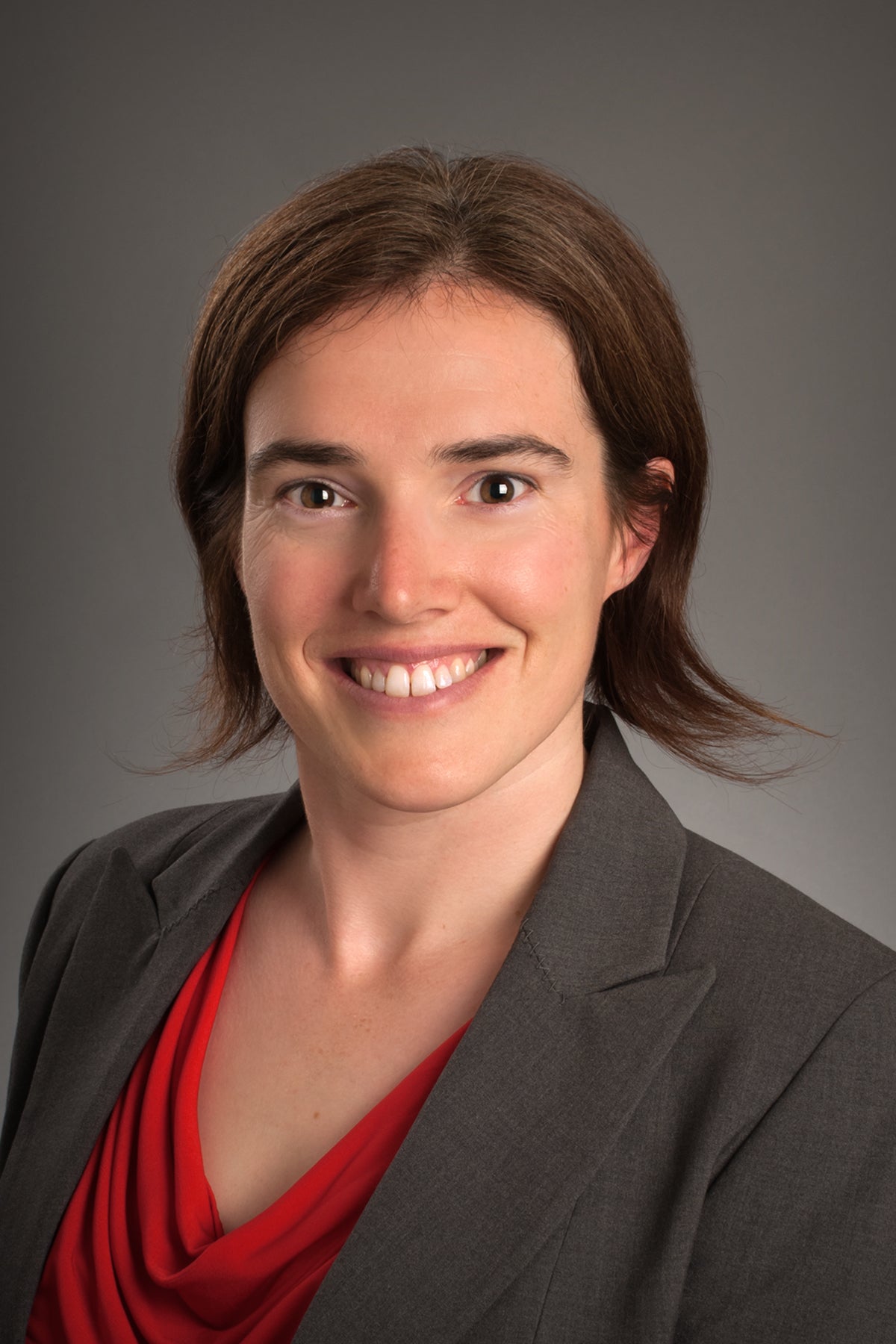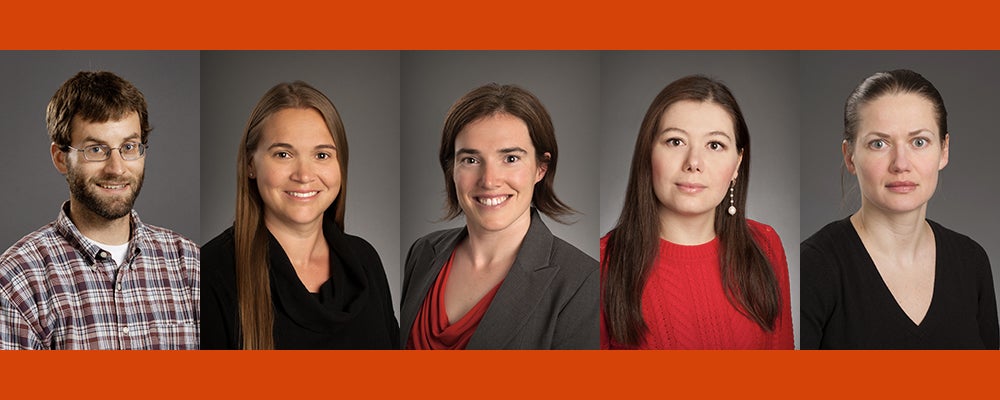
Life has a way of taking its toll on a body’s joints. That soccer injury, those years of standing in the workplace, or that hiking accident: all of the wear and tear asks a lot of the cartilage that tries to protect bones during an individual’s daily activity. And for more than a third of the population over the age of 65 who suffer from osteoarthritis, the resulting pain and lack of flexibility and mobility can drastically impact quality of life.
According to the Centers for Disease Control and Prevention, osteoarthritis impacts 32.5 million people in the U.S. alone, and has no cure. Not only that, but there is still much that is not understood about the disease, including risk factors, onset and progression.
To advance the field of knowledge around osteoarthritis, mechanical and biomedical engineering assistant professor Clare Fitzpatrick is looking to computational modeling research, which may hold the key to both treatment and prevention of this widespread disease.
With the support of a newly awarded five-year National Science Foundation CAREER award of more than $560,000, Fitzpatrick’s research will tackle four main goals:
- Developing automated algorithms for knee models from medical images
- Developing a statistical shape-function model for real-time prediction of knee joint mechanics
- Determining the primary structural, biological and mechanical predictors of osteoarthritis progression,
- Developing an interactive computational platform to predict the longitudinal progression of knee osteoarthritis.
As Fitzpatrick describes it, computational modeling is often underutilized by clinicians and the medical community. However, with this grant, her team will be able to develop better tools that would enable these communities to use patient-specific data to better predict patient outcomes.
“Any patient population is inherently highly variable, with unique anatomy, loading conditions, limb alignment, activities and material properties of biological tissue,” said Fitzpatrick. “Computational models give us a way of developing a more targeted patient-specific approach. We can use these models to answer the ‘what if’ questions to predict how a particular patient will respond to potential treatment options.”
The CAREER Award not only will support Fitzpatrick’s computational research, it will facilitate educational opportunities for both Boise State and Treasure Valley students.
For undergraduate students in Fitzpatrick’s biomechanics course, the CAREER award will empower them to create educational modules and teach K-12 students computational skills. The grant also will support National Biomechanics Day, which is hosted every year on Boise State’s campus and offers high school students hands-on experiences learning about joint loading, muscle groups and other STEM-based studies.
Finally, this award will empower Fitzpatrick to help disseminate computational models and learn more about how they are being used by clinicians. To do this, Fitzpatrick will be sharing project research and interface tools with students at the Idaho College of Osteopathic Medicine and physical therapy students at Idaho State University to gain feedback on the tools’ usefulness and perfect the tools for use by clinicians.
Fitzpatrick is one of five College of Engineering faculty awarded a NSF Career Award in 2020. Go here to learn more about the five NSF Career Awards.
